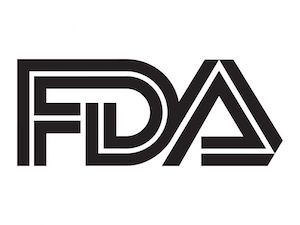FDA Approves Spesolimab, First Generalized Treatment For Pustular Psoriasis Flares in Adults
The latest indications for the novel selective antibody will make it available as a treatment for pustular psoriasis.

The US Food and Drug Administration (FDA) has approved Boehringer Ingelheim’s spesolimab (SPEVIGO) for the treatment of generalized pustular psoriasis flares in adults, the first treatment for the condition.
Spesolimab is a selective monoclonal antibody that blocks the activation of the interleukin 36 (IL-36) receptor in the body’s immune system which is involved in the pathogenesis of generalized pustular psoriasis (GPP) flares.
“GPP flares can greatly impact a patient’s life and lead to serious, life-threatening complications,” Mark Lebwohl, MD, from Mount Sinai’s Icahn School of Medicine, said in a statement. “The approval of spesolimab is a turning point for dermatologists and clinicians.”
GPP is a rare, heterogenous skin disease different from plaque psoriasis. The disease is caused by neutrophils that accumulate in the skin and lead to painful, sterile pustules on those infected. Flares can lead to hospitalization with serious complications such as heart failure, renal failure or sepsis.
The clinical trials leading to the approval of spesolimab were also the first investigations to specifically aim at treating GPP flares in the IL-36 receptor pathway, and the first to be evaluated in a statistically powered, randomized, and placebo-controlled trial.
The 12-week phase 2 EFFISAYIL 1 trial analyzed patients with GPP (n = 53), and randomly assigned 2:1 to a single 900 mg intravenous dose of spesolimab or placebo. Following 1 week, 54% of those treated with spesolimab had no visible pustules, in comparison to the 6% for the placebo arm.
In 66% of the spesolimab treatment group, adverse events were recorded after 1 week, compared to 56% of the placebo group. Serious adverse effects, however, were only reported in 6% of the treatment group after a week.
Carinne Brouillon, a member of the Board of Managing Directors for Human Pharma at Boehringer Ingelheim, praised the research and unique benefits of the newfound GPP treatment given the severity of the condition.
“This important approval reflects our successful efforts to accelerate our research with the aim to bring innovative treatments faster to the people most in need,” Brouillon said. “We recognize how devastating this rare skin disease can be for patients, their families and caregivers. GPP can be life-threatening and until today there have been no specific approved therapies for treating the devastating GPP flares.”
Spesolimab is also being investigated for GPP flare-prevention, as well the treatment of other neutrophilic skin diseases.